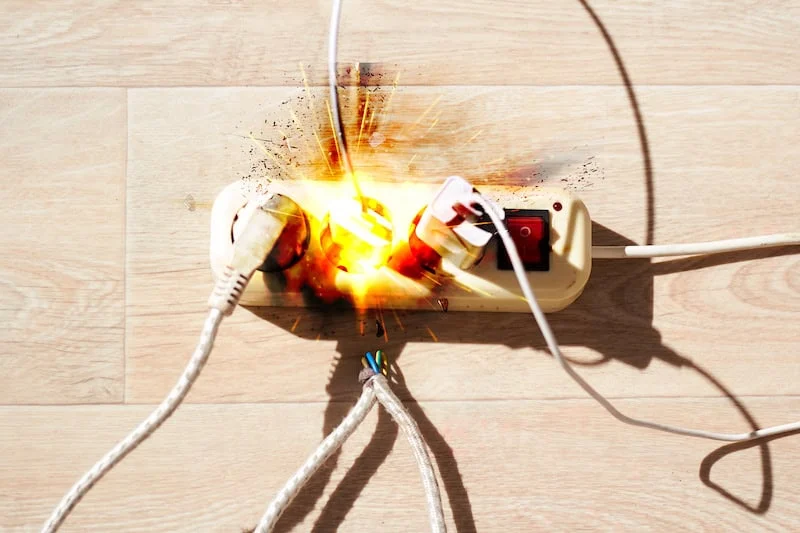Here’s What You Should Do After an Electrical Shock Accident

Here’s What You Should Do After an Electrical Shock Accident
Perhaps the biggest paradox with electricity is that you use it daily but can’t touch it. Doing so could result in an electrical shock where an electrical current flows through your body, burning your internal and external tissues and causing muscle spasms, internal organ damage, and cardiac arrest.
Because electricity is all around us, knowing what to do in an electric accident is crucial, as it can help save you or your loved ones from extensive injuries from electrical shock in the event of an accident. Read this blog for more information.
What Should I Do if I or Someone Else Has Been Shocked?
“Receiving an electrical shock can feel like a minor zap or a severe jolt, depending on the voltage, the time it takes for the victim to let go or be disconnected from the source, and the path the electrical current takes through the body,” says personal injury attorney David Boehrer of DBLF Injury Lawyers.
If You’ve Been Shocked
There’s often little you can do when you’re being electrocuted, as the entire event can quickly make you unconscious. If you believe you’re getting shocked, try doing the following:
- Let go of the electric source
- Call 911 or local emergency services if you can. If not, yell out for someone to do it for you
- Unless you’re moving away from the electric source, try not to move
It’s important to get treated as soon as possible because electrical shock can cause internal injuries that may not always show right away.
If Someone Else Has Been Shocked
If someone else has been shocked and you want to help them, you’re going to have to be careful. The human body is an excellent conductor of electricity, so touching them means you’d be electrocuted too. Stick to the following guidelines if someone around you has been electrocuted:
- Don’t touch them when they’re still in contact with the source of electricity.
- Don’t attempt to move them unless it’s necessary to do so to stop further shock.
- Turn off the source of power as quickly as you can. If this is not possible, try moving it away from the victim. Don’t touch it yourself or use anything wet or metal-based. Wood and rubber are nonconducting objects that are pretty easy to find wherever the accident happens, whether at home, at work, or even out in public.
- If the victim has been shocked by high-voltage power lines that are still on, you’re going to want to keep at least 20 feet away.
- Call 911 or local emergency services as soon as possible.
- If safe, check whether the victim is breathing. Start giving them CPR as you wait for help.
- If the victim starts showing signs of shock, through vomiting or becoming faint or pale, try elevating their legs and feet slightly, unless doing this causes too much pain.
- Cover any burns with sterilized gauze if available; just don’t use band-aids or anything that might stick to the wound.
How an Electrical Accident Lawyer Can Help: Navigating Your Rights, Seeking Compensation, and Ensuring Safety After an Injury
An electrical accident can happen for many reasons. Maybe the device you or your loved one was using was faulty. Maybe the wiring in your house is faulty or you may have misused an extension cord. You also may be exposed to dangerously damp conditions at work.
Whatever the case, most electrical accidents are preventable. If your unfortunate event was due to the actions or inactions of another person or company, you could be entitled to monetary settlements for damages through a personal injury lawsuit.
An electrical accident lawyer can explain your rights, whether you have grounds for a case, and the steps you should take to initiate the claim. They will represent you during negotiations, ensuring you are not shortchanged.
Conclusion
Despite being all around us, touching electrical current through naked or exposed wires, overhead lines, or damaged equipment can be dangerous, sometimes even fatal. An electrical accident lawyer can help you determine whether another person was responsible for your injuries and help you sue them through a personal injury lawsuit.

Related Items:





